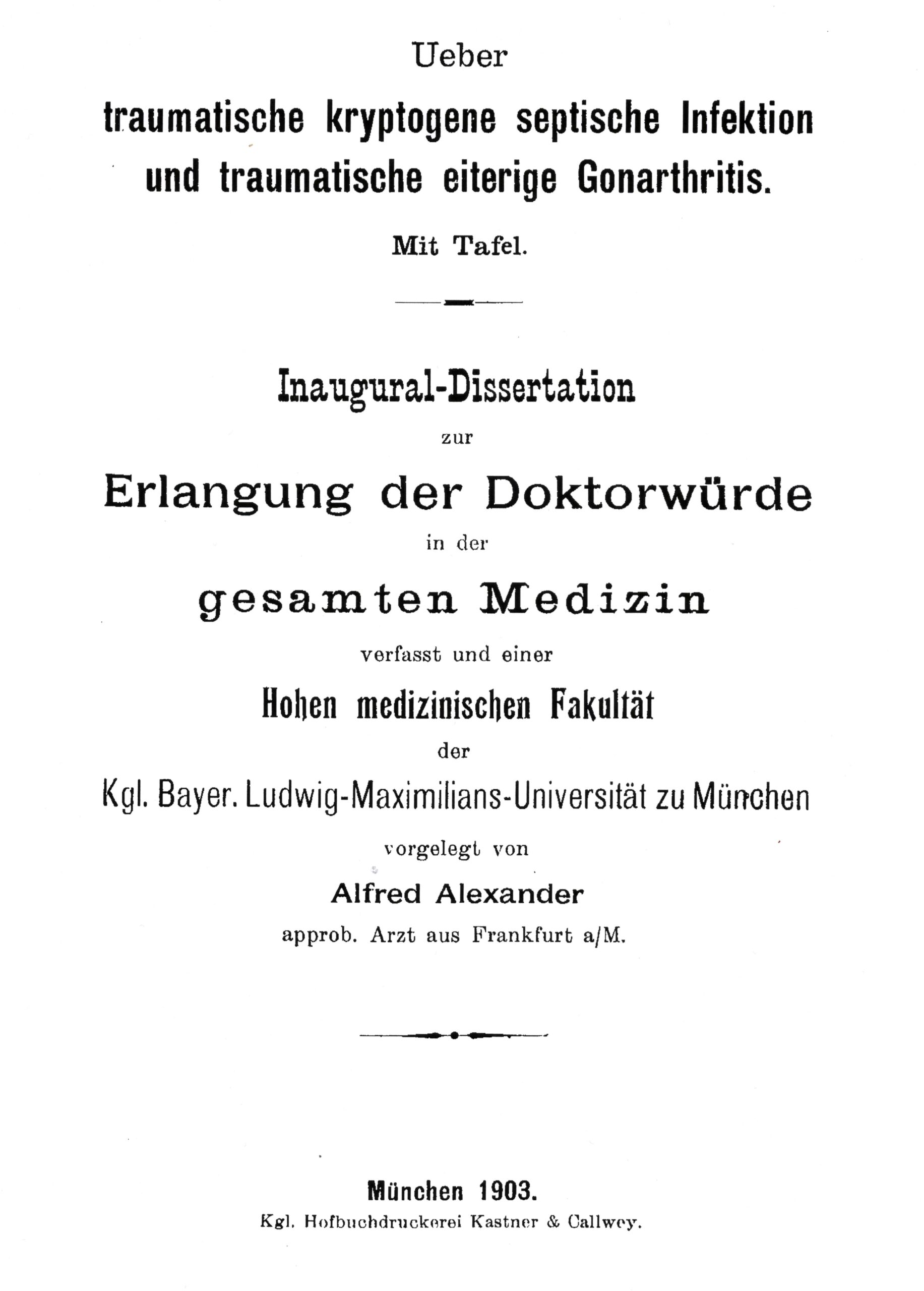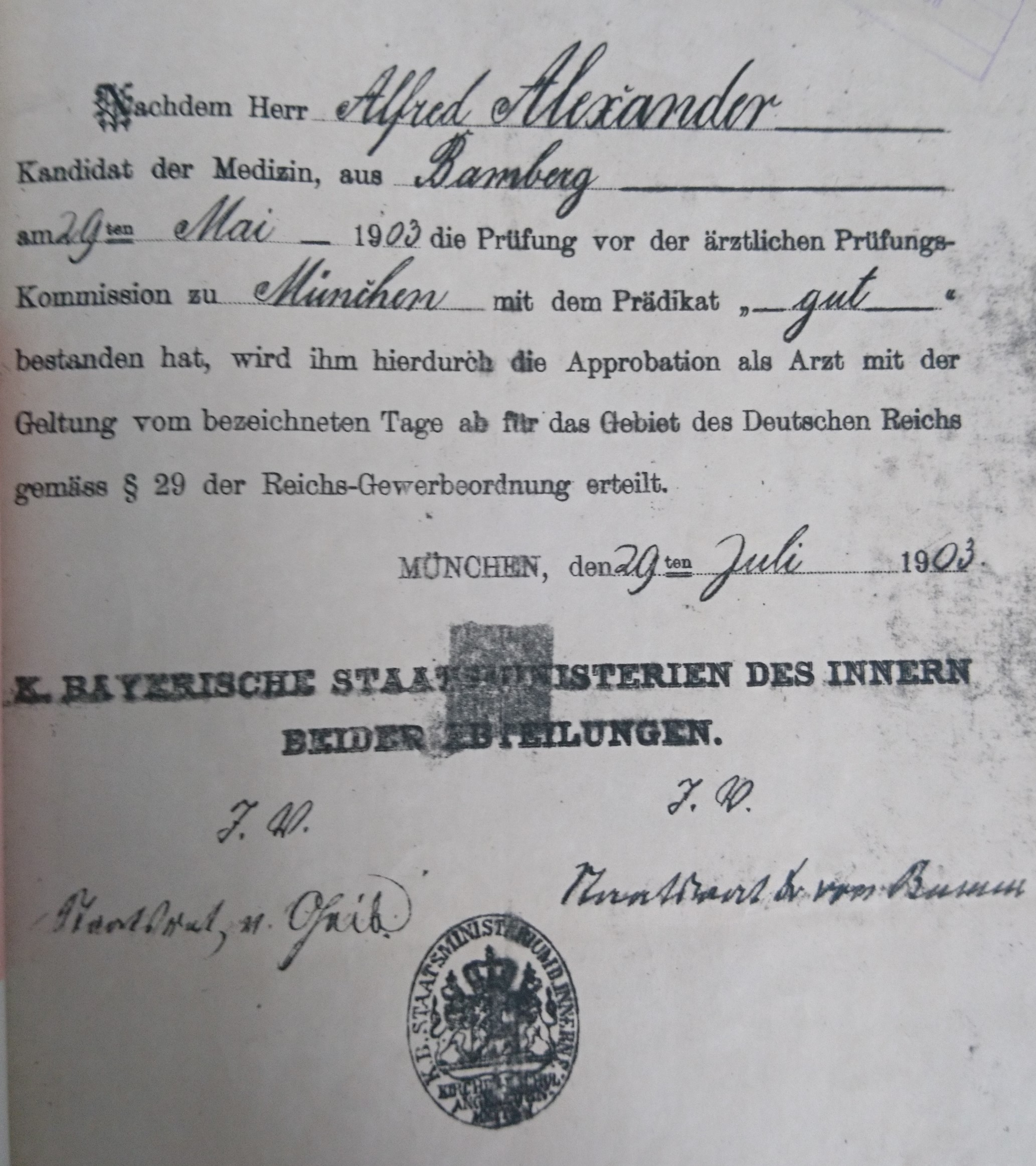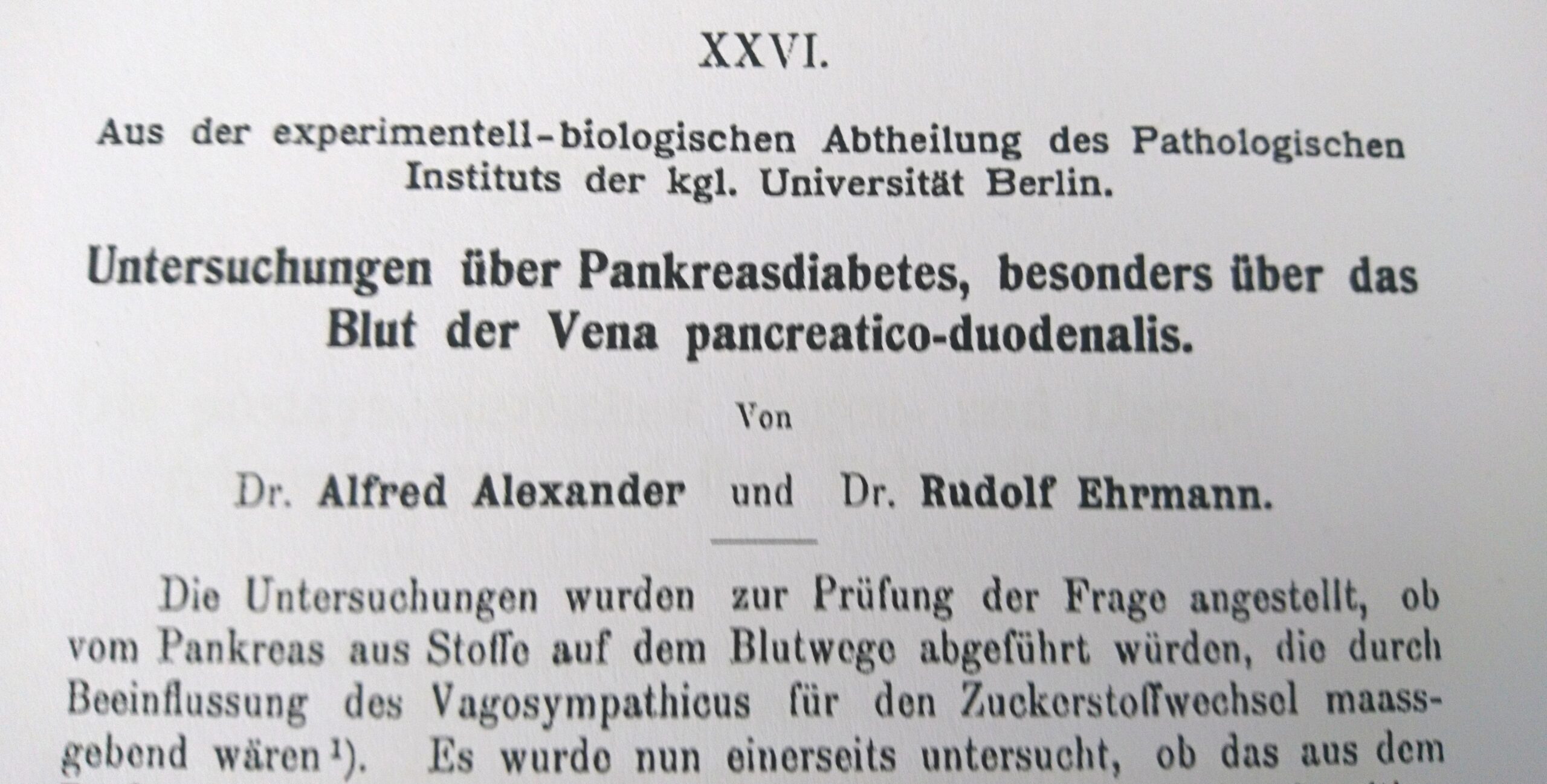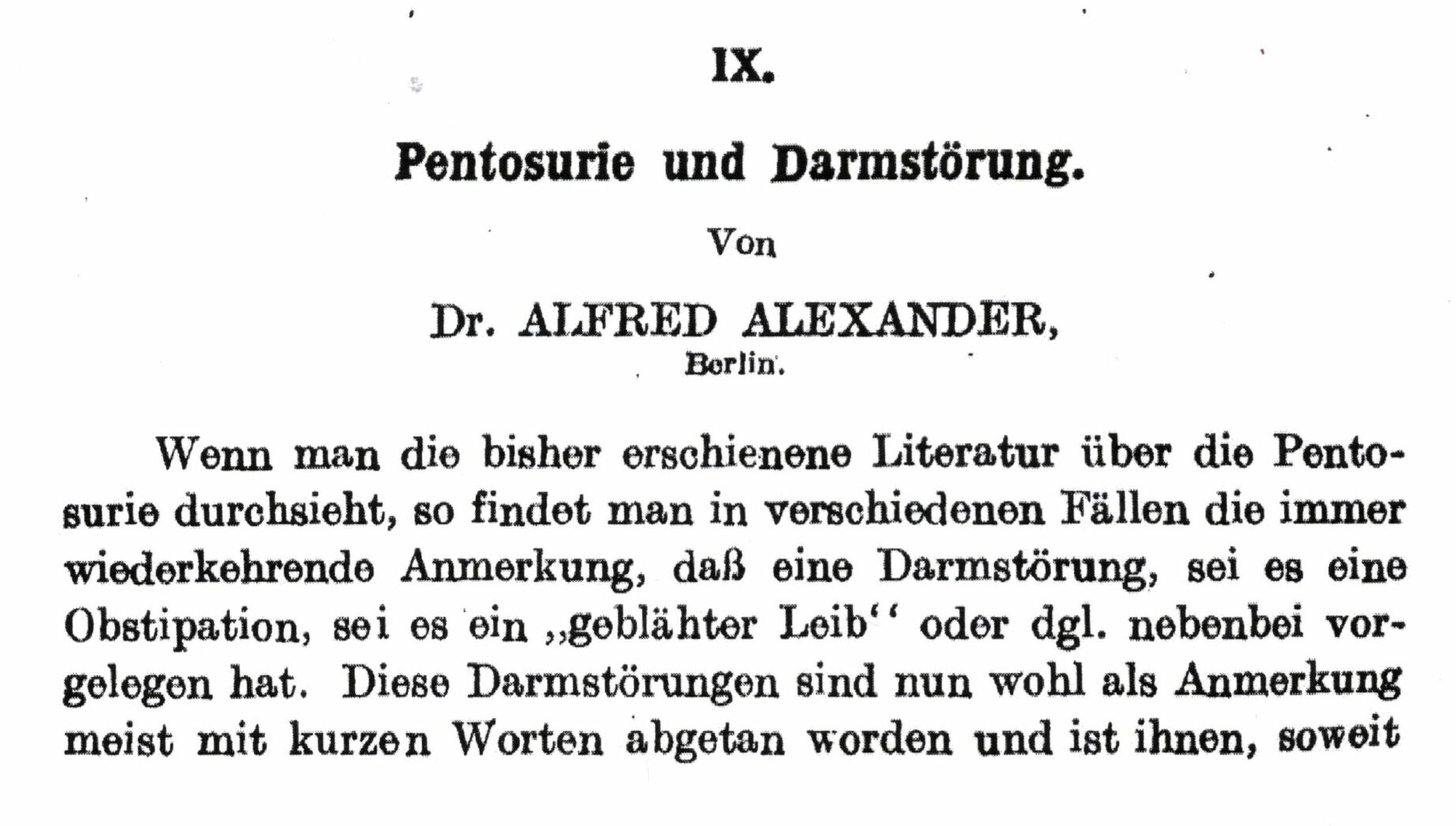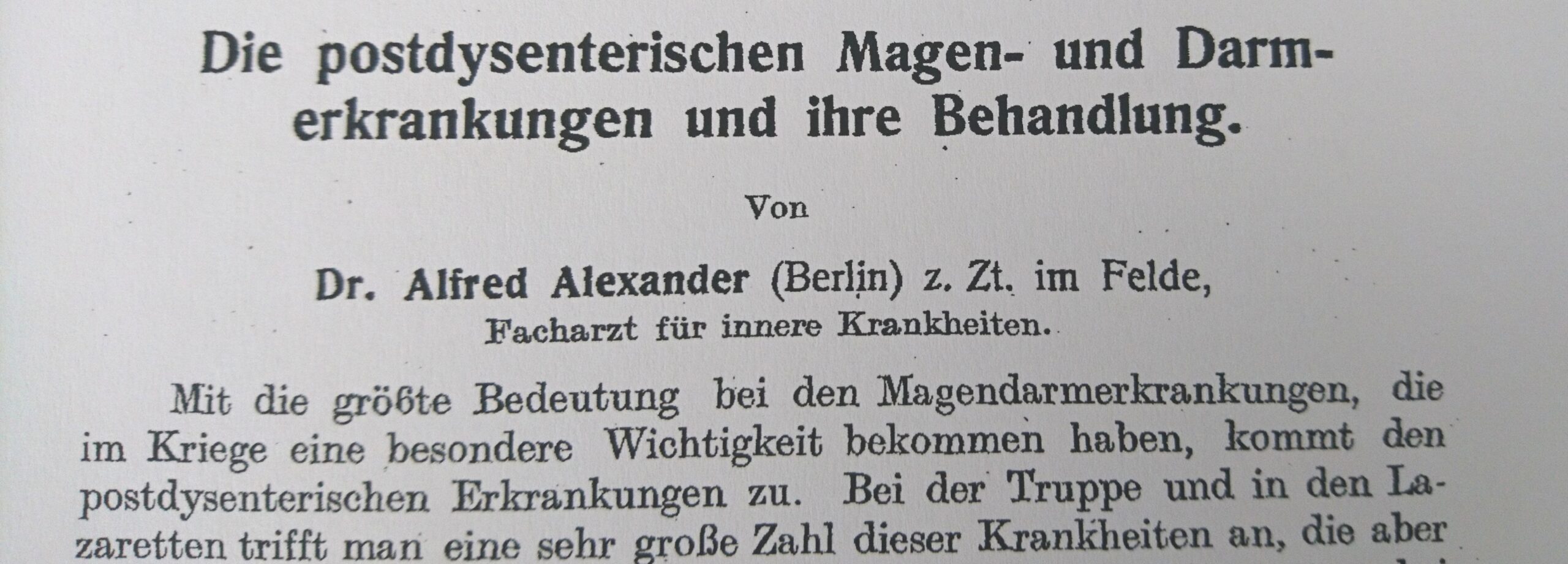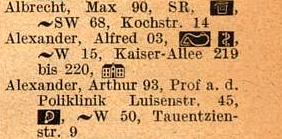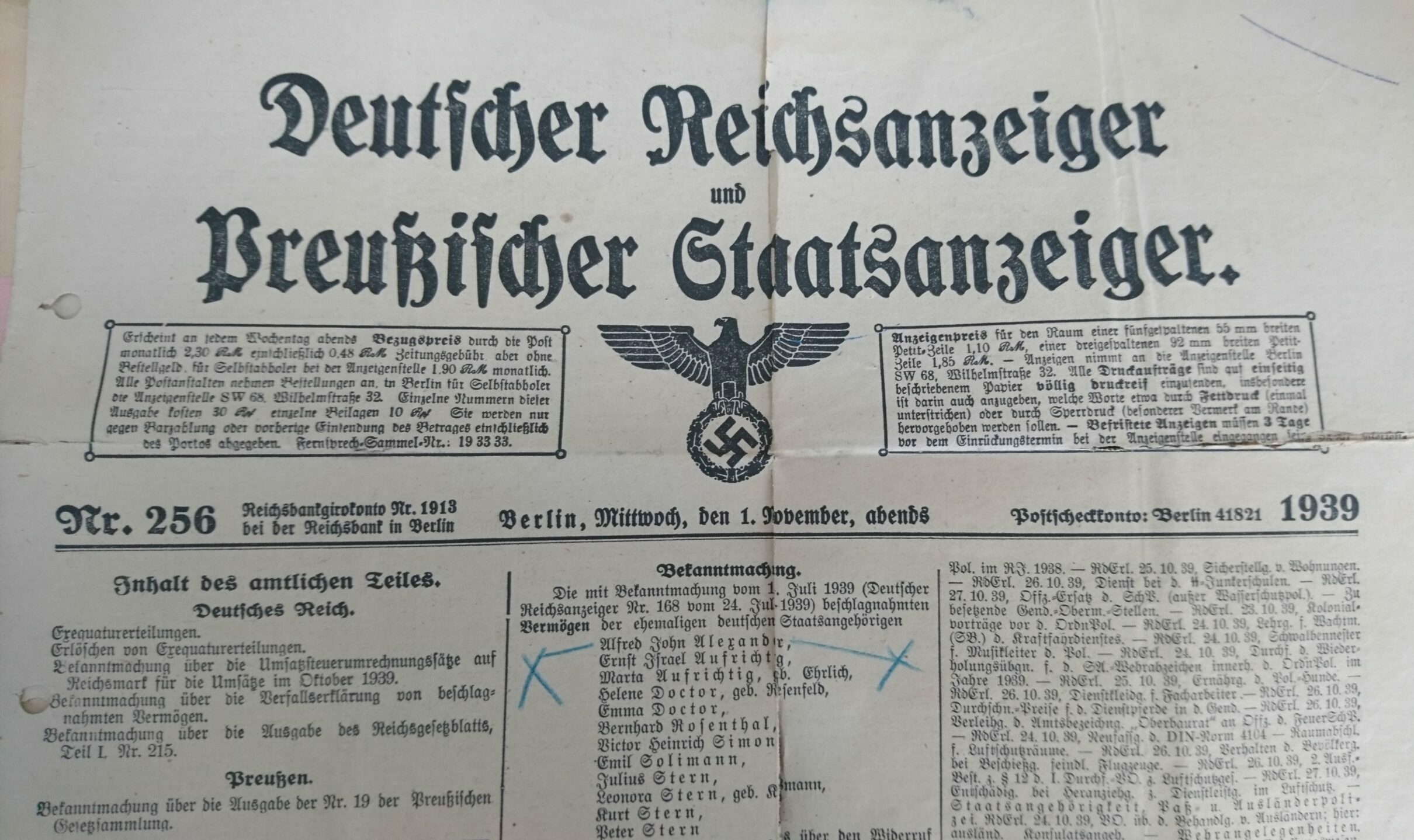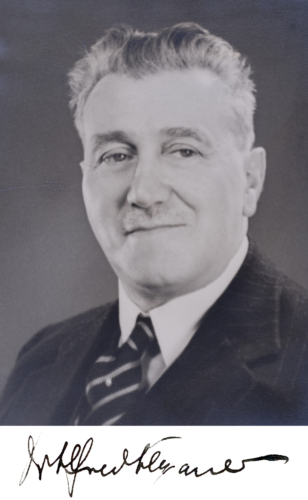Dr. med. Alfred John Alexander
- Bamberg, 07.03.1880
- Zurich, 15.05.1950
- Member since 1926
- Escaped to England in 1937
- Berlin
- Specialist in internal medicine and specialist for gastro-intestinal and metabolic diseases
“I, Alfred Alexander, was born in Bamberg on 7 March 1880 as the son of the late Royal Bavarian Advocate and Lawyer Dr. Hermann Alexander (special business title awarded during the German empire). I started elementary school at the Wöhler School in Frankfurt am Main in the fall of 1886, which I left in 1889 to attend the municipal grammar school in the same city. I graduated with a school leaving certificate in the autumn of 1898 and went to the University of Munich, where I enrolled in the medical faculty on 21 October 1898,” Alfred Alexander wrote in his dissertation. His father had died in 1885. His mother Bella Alexander, née Lehmaier, subsequently moved to Frankfurt am Main with her children.
Education and Places of Work
Alexander passed the preliminary medical examination at Munich University in the summer of 1900, moved to Berlin for three semesters, then returned to Munich for the winter semester of 1901/02, where he passed the state examination in the spring of 1903. He obtained his doctorate at the University of Munich the same year with the thesis “Ueber traumatische kryptogene septische Infektion und traumatische eitrige Gonarthritis”.
Alexander undertook his training in internal medicine under Albert Albu at his Berlin practice and polyclinic for internal diseases. Alongside Ismar Boas, Hermann Strauss and Theodor Rosenheim, Albu was one of the leading and pioneering Berlin gastroenterologists at the time. Alexander paid tribute to Albert Albu on his death in 1921 with a detailed and honourable obituary in the ‘Archiv für Verdauungs-Krankheiten’ ( 1921; 27: 224 – 226 ). Alexander was also part of the circle of friends of Ismar Boas.
Alexander initially worked on issues relating to diabetes mellitus and published the paper “Untersuchungen über den Pankreasdiabetes, besonders über das Blut der Vena pancreatico-duodenalis” together with Rudolf Ehrmann in 1908. He had written this paper at the department of experimental biology of the Institute of Pathology at the Charité.
Alexander worked as a military doctor during the First World War. He temporarily ran a military hospital and worked as a consultant internist. He was confronted with the consequences of the influenza pandemic (“Spanish flu”) from mid-1918.
After completing his training in internal medicine, Alexander settled as a specialist in internal medicine with a focus on gastrointestinal diseases, first at 68 Oranienburger Strasse and later at 220 Kaiserallee. The practice grew rapidly and had a large number of patients. Patients included well-known Berlin scientists, artists, and writers. Furthermore, he also headed his own private “Sanatorium Dr. Alexander” with 31 beds in Berlin’s Achenbachstrasse 15 from 1925 to 1936. Alfred Alexander sold the clinic along with the property at Achenbachstrasse 15 on 30 January 1937 to Paul Hirsch-Mamroth.
Alexander was very active in the medical associations. He was chairman of the support fund of the Berlin Medical Association and a member of the board of the Jewish Hospital Berlin. He also worked in social welfare.
Escape to England in 1937
Alexander fled to London with his wife Henriette (Henny), nee Picard, March 25th, 1937 (official date of Alexanders emigration within the documents of the German NS administration). He had experienced the early revocation of his authorization to treat patients with statutory health insurances and the increasing anti-Jewish measures of the National Socialists. Their four children also found refuge in England. Alfred Alexander obtained the certificate entitling him to practise medicine in England after having studied in Edinburgh and Glasgow for a while and having passed the required English examinations. He resumed his work as a general practitioner in England in 1938. He was released from internment as an enemy alien in October 1939 after the outbreak of the Second World War. During this time the Alexander family lived at 11 Addisland Court in the London Borough of Kensington. Alexander’s practice was located at London’s Cavendish Place in the autumn of 1939. Alexander later moved his practice to Harley Street and also maintained practice premises in Wimpole Street.
The Nazi authorities revoked Alexander’s German citizenship in July 1939. In this context, the GESTAPO confiscated the Alexander family’s property in Germany, including the summer house Groß Glienicke. He was stripped of his doctorate by the Ludwig Maximilian University of Munich in November 1939. The Alexanders received their British citizenship in 1947.
Alfred John Alexander died during a visit to Zurich on 15 May 1950 at the age of 70. Alfred Alexander’s great-grandson Thomas Harding drew attention to the disenfranchisement and persecution of the Alexander family during the Nazi dictatorship in two impressive publications in 2014 and 2016.
Sources and Further Reading
Sources
